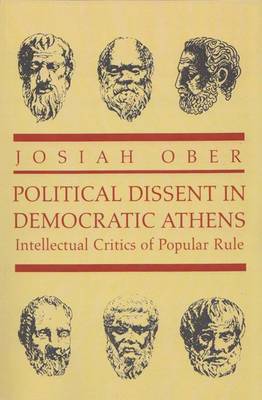Martin Classical Lectures
1 total work
How and why did the Western tradition of political theorizing arise in Athens during the late 5th and 4th centuries BC? By interweaving intellectual history with political philosophy and literary analysis, Josiah Ober argues that the tradition orginated in a high-stakes debate about democracy. Since elite Greek intellectuals tended to assume that ordinary men were incapable of ruling themselves, the longevity and resilience of Athenian popular rule presented a problem: how to explain the apparent success of a regime "irrationally" based on the inherent wisdom and practical efficacy of decisions made by non-elite citizens? The problem became acute after two oligarchic coups d'etat in the late 5th century BC. The generosity and statesmanship that democrats showed after regaining political power contrasted starkly with the oligarchs' violence and corruption. Since it was no longer self-evident that "better men" meant "better government", critics of democracy sought new arguments to explain the relationship among politics, ethics and morality.
The author of this text offers readings of the political works of Thucydides, Plato and Aristotle among others, placing them in the context of a competitive community of dissident writers. These thinkers struggled against both democratic ideology and intellectual rivals to articulate the best and most influential criticism of popular rule.
The author of this text offers readings of the political works of Thucydides, Plato and Aristotle among others, placing them in the context of a competitive community of dissident writers. These thinkers struggled against both democratic ideology and intellectual rivals to articulate the best and most influential criticism of popular rule.
